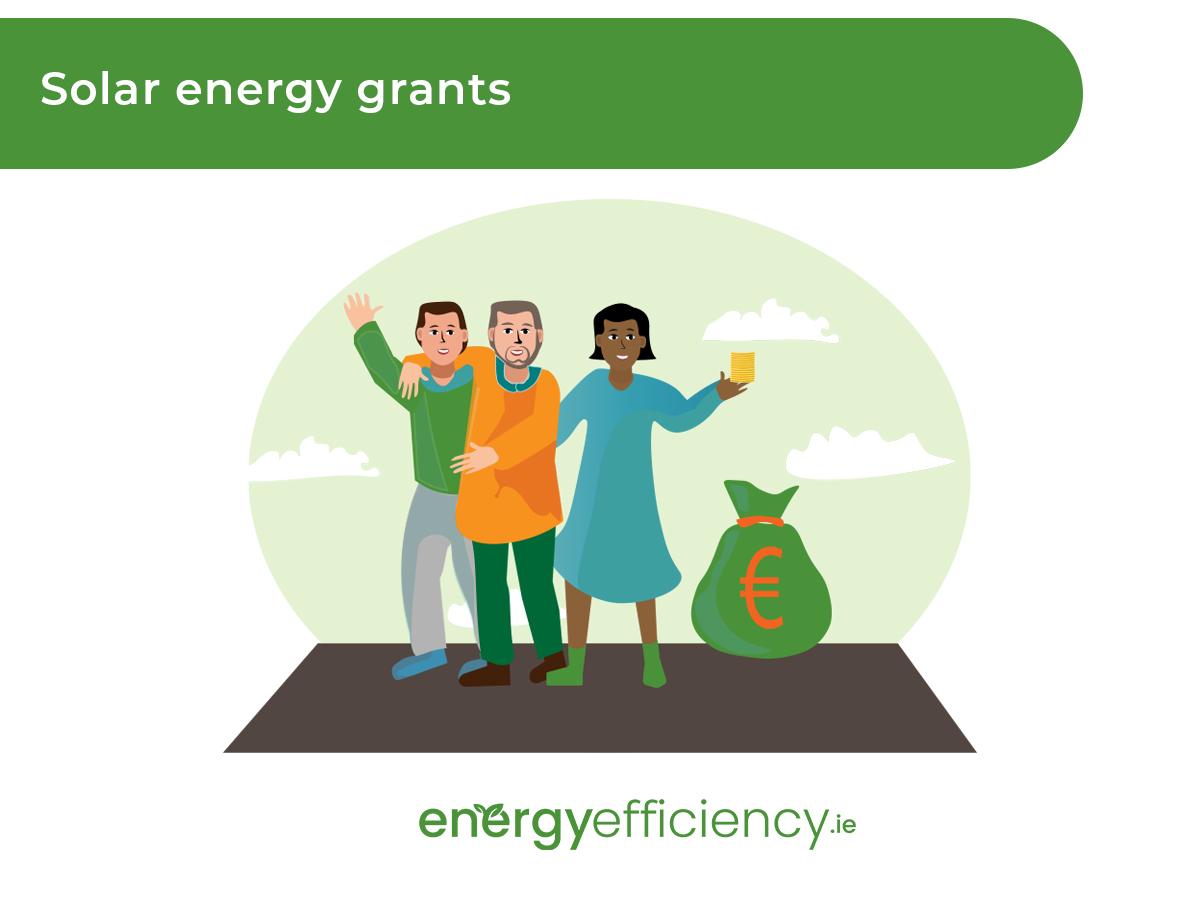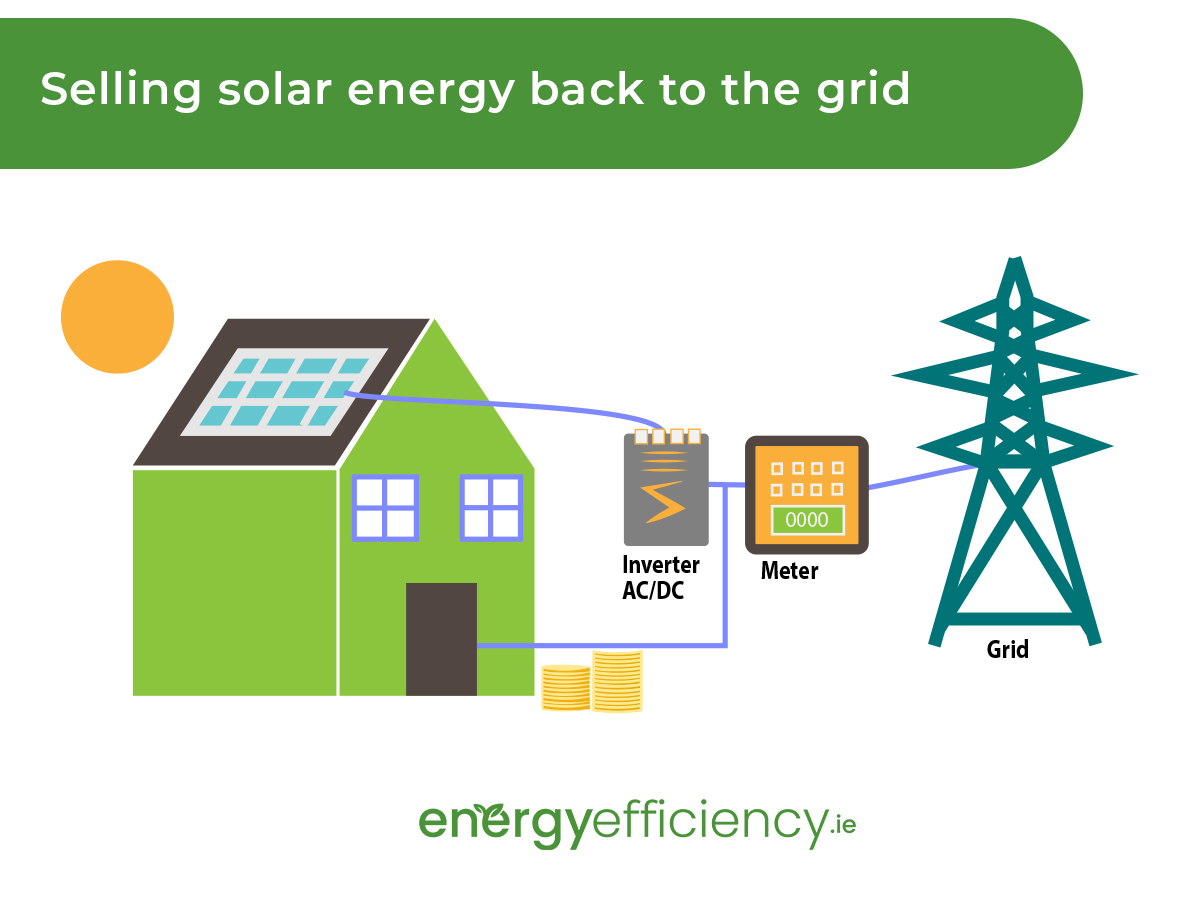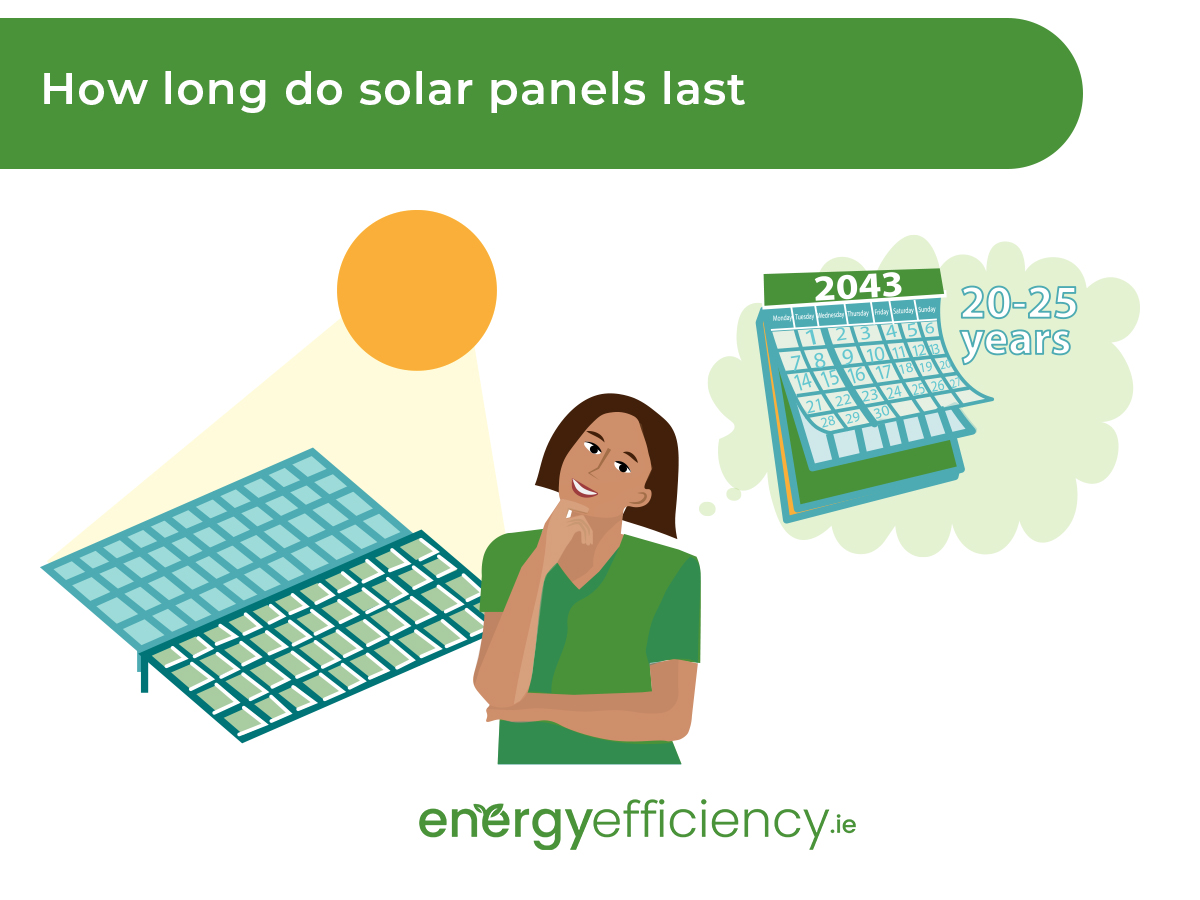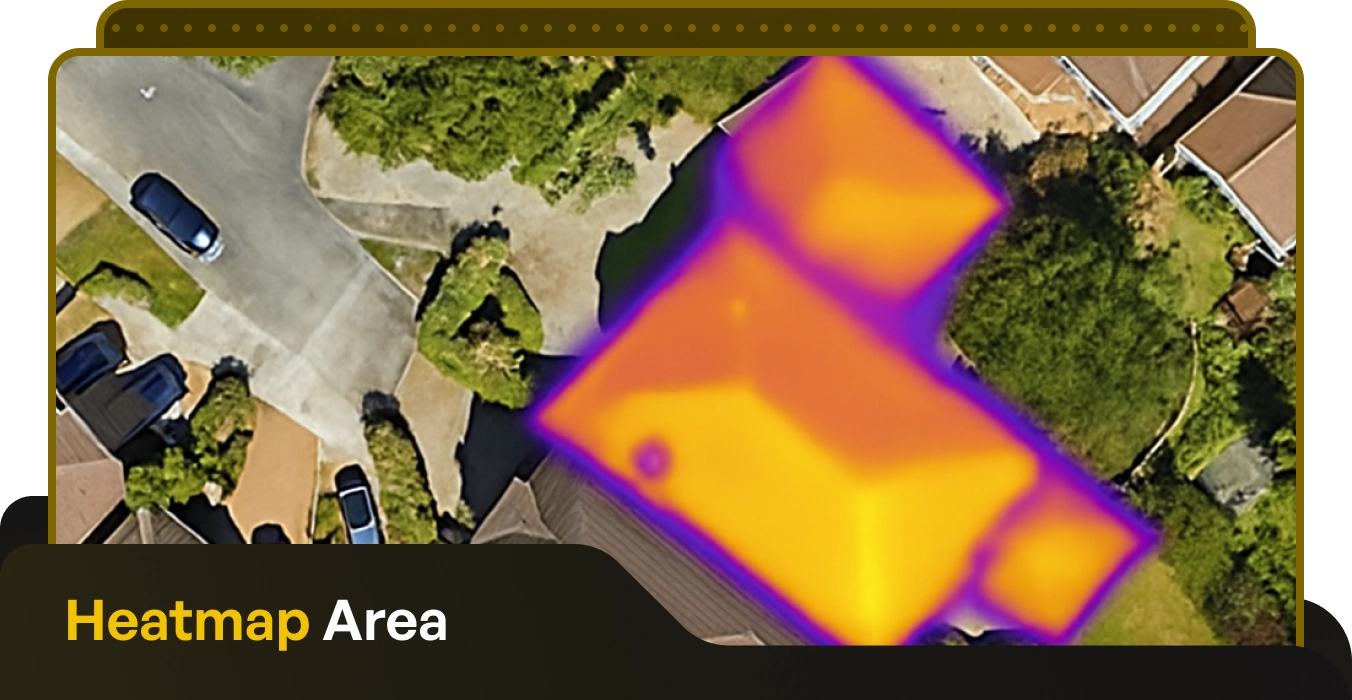Table of Contents
Solar Panels Payback Period – Update 2025

Written by: Briain Kelly
Published: July 8, 2025
Last updated: October 21, 2025
Reading time: 4 mins
Solar Panels for your home and business will pay for themselves several times over in the course of their expected lifespan in the form of reduced electricity bills and selling any surplus power back to the grid.
With the high potential upfront cost of getting solar panels installed, people want to know how long it will take for their solar panels to pay themselves off.
In Ireland, in 2025, most people with solar panels installed on their homes can expect a payback period of between 5 and 7 years.
For many businesses with solar panel systems that can be even shorter, taking as little as 4 years before they completely reclaim their cost.
Here is a quick rundown of some of the factors affecting the payback period of a solar panel system.
Larger Solar Panel Systems Pay for Themselves Faster
With the cost of solar panel systems these days there is an economy of scale at work that incentivises buying large.
Due to dramatic reductions in the cost of solar PV equipment, while installation costs remain high, it works out as much better value to install as many solar panels as you can.
For example, a house with 16 solar panels might pay for itself in as little as 4 years and 9 months based on a 60% self-consumption / 40% export ratio, with an electricity rate of 34c per kWh and a feed in tariff of 19.5c per kWh.
On the other hand, 10 solar panels would take 6 years to pay off in the same circumstances, and 8 solar panels could take 6 years and 10 months.
Though the overall purchase cost is higher, they will still pay for themselves quicker due to their higher electricity production. The installation cost will also be a smaller portion of the overall cost of the solar PV system for most households.
The Cost of Solar Panels in Ireland
The average cost of solar panel installation in Ireland is between €6,600 to €8,700 with the help of an SEAI grant, with larger systems naturally costing more.
| Number of Solar Panels | Solar PV System Cost | Payback Period |
|---|---|---|
| 8 | ~ €5,750 | 8 Years & 3 Months |
| 10 | ~ 6,300 | 7 Years & 2 Months |
| 12 | ~ €7,100 | 6 Years & 5 Months |
| 14 | ~ €7,450 | 5 Years & 8 Months |
| 16 | ~ €8,200 | 5 Years & 4 Months |
Solar Grants in Ireland
Even those who are extremely interested in installing solar panels on their home, may be put off by the initial costs. But SEAI solar grants make a considerable difference to the installation costs.
Homeowners to receive solar PV grants from the SEAI of up to a maximum of €1,800, which can reduce the cost of getting solar panels by 15% – 20%.
The size of the SEAI grant is determined by the size of the solar PV system, up to a ceiling of 4kWp. The current grant rates are:
- €700 per kWp up to 2kWp
- €200 per kWp up to 4kWp
In addition, SEAI grants of €1,200 are available for those who wish to install solar thermal panels instead.

The Price of Electricity
The higher the cost of your electricity, the more money solar panels will save you and the shorter their payback period will become.
If you get solar panels this is something to keep in mind if swapping electricity plans or providers. When your solar panels are most productive, or if you have battery storage, you can mitigate high electricity prices.
Selling Solar Back to the Grid
A feed-in tariff is the price offered by electricity companies for each unit of electricity you send back to the grid.
The odds are that when your solar panels are at their most productive in the early and mid afternoon, not all of the power they make at any given time will be used in your home.
When this happens the default option is for that power to be sent back to the grid. Thanks to the Feed-in Tariff this won’t entirely go to waste.
However, the feed-in tariff for selling electricity is almost certainly going to be lower than the price you pay for buying electricity.
Therefore you can get greater savings from solar panels by trying to use as much of their electricity as possible rather than selling it back.
Adding a solar battery can help increase the amount of solar electricity used in your home.
But the added cost of a battery may extend the payback period rather than shrink it depending on how much surplus electricity you have to begin with.
The current feed-in tariffs offered by Ireland’s electricity companies are:
| Electricity Supplier | Feed in Tariff |
|---|---|
| Pinergy | 25c per kWh |
| Energia | 20c per kWh |
| Flogas | 18.5c per kWh |
| Electric Ireland | 19.5c per kWh |
| SSE Airtricity | 19.5c per kWh |
| Bord Gais | 18.5c per kWh |
| Yuno Energy | 15.9c per kWh |
| Prepay Power | 15.9c per kWh |
Rates accurate as of July 8, 2025

Solar Panel Efficiency & Lifespan
When selecting solar panels there is a balance between getting the best performance modules, and choosing something that is within your budget.
High efficiency solar panels will generate more electricity per square meter, increasing your savings. But they will also come with a higher cost.
Higher quality solar panels are also likely to have a longer lifespan with less chance of needing maintenance that will add to their cost and the time until they have paid it back.
Good solar panels should come with a warranty of at least 20 years, but it is very common now to see solar panels with a 25 – 30 warranty for an expected lifespan of the same length.

How to get the most out of your solar panels?
The best way to ensure that you are getting the most out of your solar panels, and guaranteeing that they pay themselves off as quickly as possible, is to use the right equipment and make sure it is installed properly.
- Position the Panels Correctly
Ensure that your solar panels are positioned on your roof in the place where they will get the most sun. On a south facing roof, if possible, and without any shade. This will increase the amount of electricity they generate.
- Time Your Electricity Usage
Time the use of home appliances such as dishwashers, washing machines, or ovens to when your solar panels are at their most productive during the day.
- Store Excess Solar Power
With the average home in Ireland installing roughly 6kW worth of solar panels, and more in rural areas, homeowners will benefit from having battery storage to use as much of the electricity generated as possible.
- Choose the Right Electricity Plan
With solar panels you should browse between different possible electricity plans to choose one with prices that suit your usage patterns.
How Financing Affects Solar Panel Payback Periods
The best way to pay for your solar panels is with your own money, but that kind of expense is not always possible for people to afford out of pocket.
There are multiple ways to get financing for your solar panels, but the added interest will extend the expected payback period.
The Home Energy Upgrade Loan Scheme allows you to borrow up to €75,000 from participating financial institutions specifically to carry out home upgrades.
Interest rates for these loans start from:
- AIB: 3.55% APR
- Bank of Ireland: 3% APR
- PTSB: –
- An Post: 3.75% APR
- Connect Credit Union: 3.19% APR
- Clonmel Credit Union: 3.3% APR
- First South Credit Union: 3.9% APR
- Listowel Credit Union: 4.5% Variable Interest
- Naomh Breandan Credit Union: 2.99% APR
- North Midlands Credit Union: 4.2% Variable Interest
- Progressive Credit Union: –
Finance Ireland also offers Green Home Improvement loans with a variable interest rate of 6.7%.
The interest rates on any loan to purchase solar panels can extend the payback period by several years.
Solar Panels Payback Period – Update 2025
Published: July 8, 2025
Last updated: October 21, 2025

Written by: Briain Kelly
Reading time: 4mins
Solar Panels for your home and business will pay for themselves several times over in the course of their expected lifespan in the form of reduced electricity bills and selling any surplus power back to the grid.
With the high potential upfront cost of getting solar panels installed, people want to know how long it will take for their solar panels to pay themselves off.
In Ireland, in 2025, most people with solar panels installed on their homes can expect a payback period of between 5 and 7 years.
For many businesses with solar panel systems that can be even shorter, taking as little as 4 years before they completely reclaim their cost.
Here is a quick rundown of some of the factors affecting the payback period of a solar panel system.
Larger Solar Panel Systems Pay for Themselves Faster
With the cost of solar panel systems these days there is an economy of scale at work that incentivises buying large.
Due to dramatic reductions in the cost of solar PV equipment, while installation costs remain high, it works out as much better value to install as many solar panels as you can.
For example, a house with 16 solar panels might pay for itself in as little as 4 years and 9 months based on a 60% self-consumption / 40% export ratio, with an electricity rate of 34c per kWh and a feed in tariff of 19.5c per kWh.
On the other hand, 10 solar panels would take 6 years to pay off in the same circumstances, and 8 solar panels could take 6 years and 10 months.
Though the overall purchase cost is higher, they will still pay for themselves quicker due to their higher electricity production. The installation cost will also be a smaller portion of the overall cost of the solar PV system for most households.
The Cost of Solar Panels in Ireland
The average cost of solar panel installation in Ireland is between €6,600 to €8,700 with the help of an SEAI grant, with larger systems naturally costing more.
| Number of Solar Panels | Solar PV System Cost | Payback Period |
|---|---|---|
| 8 | ~ €5,750 | 8 Years & 3 Months |
| 10 | ~ 6,300 | 7 Years & 2 Months |
| 12 | ~ €7,100 | 6 Years & 5 Months |
| 14 | ~ €7,450 | 5 Years & 8 Months |
| 16 | ~ €8,200 | 5 Years & 4 Months |
Solar Grants in Ireland
Even those who are extremely interested in installing solar panels on their home, may be put off by the initial costs. But SEAI solar grants make a considerable difference to the installation costs.
Homeowners to receive solar PV grants from the SEAI of up to a maximum of €1,800, which can reduce the cost of getting solar panels by 15% – 20%.
The size of the SEAI grant is determined by the size of the solar PV system, up to a ceiling of 4kWp. The current grant rates are:
- €700 per kWp up to 2kWp
- €200 per kWp up to 4kWp
In addition, SEAI grants of €1,200 are available for those who wish to install solar thermal panels instead.

The Price of Electricity
The higher the cost of your electricity, the more money solar panels will save you and the shorter their payback period will become.
If you get solar panels this is something to keep in mind if swapping electricity plans or providers. When your solar panels are most productive, or if you have battery storage, you can mitigate high electricity prices.
Selling Solar Back to the Grid
A feed-in tariff is the price offered by electricity companies for each unit of electricity you send back to the grid.
The odds are that when your solar panels are at their most productive in the early and mid afternoon, not all of the power they make at any given time will be used in your home.
When this happens the default option is for that power to be sent back to the grid. Thanks to the Feed-in Tariff this won’t entirely go to waste.
However, the feed-in tariff for selling electricity is almost certainly going to be lower than the price you pay for buying electricity.
Therefore you can get greater savings from solar panels by trying to use as much of their electricity as possible rather than selling it back.
Adding a solar battery can help increase the amount of solar electricity used in your home.
But the added cost of a battery may extend the payback period rather than shrink it depending on how much surplus electricity you have to begin with.
The current feed-in tariffs offered by Ireland’s electricity companies are:
| Electricity Supplier | Feed in Tariff |
|---|---|
| Pinergy | 25c per kWh |
| Energia | 20c per kWh |
| Flogas | 18.5c per kWh |
| Electric Ireland | 19.5c per kWh |
| SSE Airtricity | 19.5c per kWh |
| Bord Gais | 18.5c per kWh |
| Yuno Energy | 15.9c per kWh |
| Prepay Power | 15.9c per kWh |
Rates accurate as of July 8, 2025

Solar Panel Efficiency & Lifespan
When selecting solar panels there is a balance between getting the best performance modules, and choosing something that is within your budget.
High efficiency solar panels will generate more electricity per square meter, increasing your savings. But they will also come with a higher cost.
Higher quality solar panels are also likely to have a longer lifespan with less chance of needing maintenance that will add to their cost and the time until they have paid it back.
Good solar panels should come with a warranty of at least 20 years, but it is very common now to see solar panels with a 25 – 30 warranty for an expected lifespan of the same length.

How to get the most out of your solar panels?
The best way to ensure that you are getting the most out of your solar panels, and guaranteeing that they pay themselves off as quickly as possible, is to use the right equipment and make sure it is installed properly.
- Position the Panels Correctly
Ensure that your solar panels are positioned on your roof in the place where they will get the most sun. On a south facing roof, if possible, and without any shade. This will increase the amount of electricity they generate.
- Time Your Electricity Usage
Time the use of home appliances such as dishwashers, washing machines, or ovens to when your solar panels are at their most productive during the day.
- Store Excess Solar Power
With the average home in Ireland installing roughly 6kW worth of solar panels, and more in rural areas, homeowners will benefit from having battery storage to use as much of the electricity generated as possible.
- Choose the Right Electricity Plan
With solar panels you should browse between different possible electricity plans to choose one with prices that suit your usage patterns.
How Financing Affects Solar Panel Payback Periods
The best way to pay for your solar panels is with your own money, but that kind of expense is not always possible for people to afford out of pocket.
There are multiple ways to get financing for your solar panels, but the added interest will extend the expected payback period.
The Home Energy Upgrade Loan Scheme allows you to borrow up to €75,000 from participating financial institutions specifically to carry out home upgrades.
Interest rates for these loans start from:
- AIB: 3.55% APR
- Bank of Ireland: 3% APR
- PTSB: –
- An Post: 3.75% APR
- Connect Credit Union: 3.19% APR
- Clonmel Credit Union: 3.3% APR
- First South Credit Union: 3.9% APR
- Listowel Credit Union: 4.5% Variable Interest
- Naomh Breandan Credit Union: 2.99% APR
- North Midlands Credit Union: 4.2% Variable Interest
- Progressive Credit Union: –
Finance Ireland also offers Green Home Improvement loans with a variable interest rate of 6.7%.
The interest rates on any loan to purchase solar panels can extend the payback period by several years.
Solar Energy Saves Households Thousands in Electricity Costs
Take our 2-minute questionnaire and find affordable solar options to suit your budget and lifestyle.



